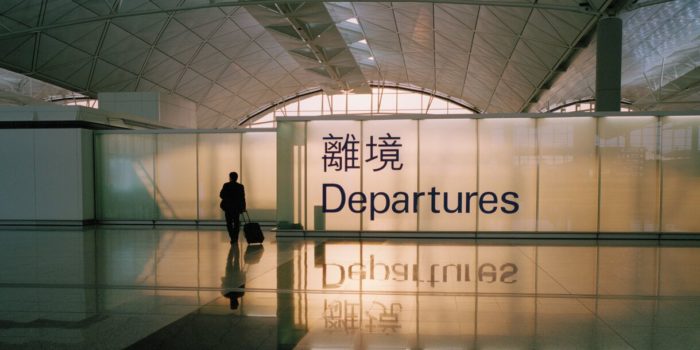
Corporate relocation professionals feel unrelenting pressure to control costs, and the need to continuously re-evaluate benefits to assure their stakeholders that their program is optimized.
One area that warrants closer examination in the ongoing battle to control program costs is the airline industry.
As of April 2018, Delta Airlines became the first major global carrier to introduce baggage fees for all transatlantic basic economy tickets.
Specifically, the limitations on checked baggage. In the past, International carriers were allowing two free checked bags per person but recently some airlines have restricted this to only one free checked bag.
Moreover, airlines are now charging fees for items that were previously included in the basic price, such as meals and headsets in-flight entertainment, and this is increasing costs for companies who typically provide benefits for international transferees. Most companies have allowed some excess baggage but with the changing airline baggage regulations and additional fees, companies will need to look into even higher costs in this category of move related expenses.
According to our research, 21% of the companies we surveyed elect to cap the cost benefit (ranging from $150-$2,000).
When looking at the cost of excess baggage, it’s important to know that some international airlines charge fees per kilogram versus per item, otherwise known as, Piece Concept versus Weight Concept.
By law, all flights originating or terminating from the U.S. and Canada must follow the Piece Concept guidelines, while in the Middle East and Asia the Weight Concept is more prevalent.
23% of companies elect to cap this benefit currently with weight in either kilograms or pounds.
Let’s take a look at this chart below that outlines the difference between two families of four traveling with the Piece vs. Weight Concept who are utilizing the baggage allowance within their policy:

Think about moving to a new country and the items that you would need immediately. Relocation is very different from traveling for a vacation. You have moved yourself and or your family, you are starting your career in a new location where you’ll need clothes for work and leisure and possibly a new climate. You will have computers, medicines, toiletries, and other personal items and valuables that you might prefer to hand carry. These are, after all, items that won’t be insured if placed in the household goods shipment.
Most of these necessity items cannot all fit into a checked and carry-on bag, so we recommend considering these excess baggage fees, as well as how many total bags ones allowed to determine if a policy revision should be made.
With airlines charging for baggage, it’s important for companies to consider this extra expense for assignees when writing their policies. To avoid any delays in authorizing expenses for excess baggage, consider implementing a per person or per family cap on the cost as a best practice.Laura Levenson
We recommend reviewing your policies with an understanding of how these changes within the airline industry will impact your total relocation cost and the employee experience.
Especially today, the cost of air travel extends beyond just the ticket price, making it important to work with your travel providers to learn the best options for your transferees. We also recommend working with your Relocation Management Company to audit and track your spend on excess baggage fees and how to incorporate language into your policy about the excess baggage benefits.
In our ever-changing world, this is just one example of cost savings in the bag and how the impact of packing light or taking full advantage of baggage allowance can make a difference. Mobility policies are living documents that need to be reviewed from time to time to bag the best cost control possible.
*TheMIGroup, cited in Mobility Magazine April Issue